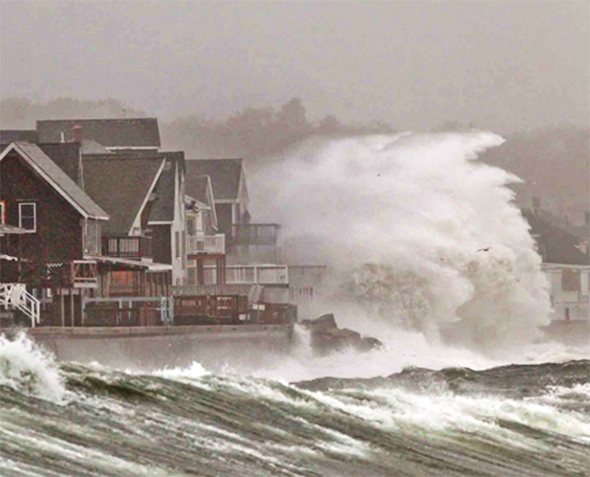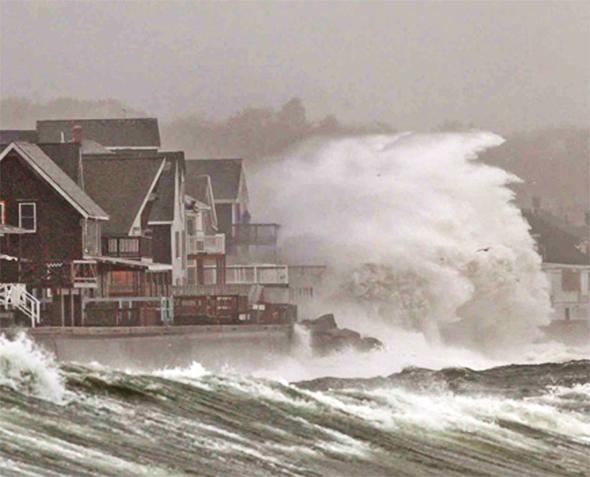KID REPORTERS’ NOTEBOOK
Hurricane Hunters


Waves crash over a seawall in Scituate, Massachusetts, on the eve of Hurricane Sandy in October 2012. The superstorm claimed more than 230 lives in the United States and caused an estimated $65 billion in damages.
The Atlantic hurricane season officially begins on June 1. The season, which lasts until November 30, means an increased threat of hurricanes and tropical storms along the East Coast. Tropical storms generally cause wind gusts between 39 and 73 miles per hour. Hurricanes can generate wind speeds of up to 200 miles per hour, bringing heavy downpours and large waves.
I recently spoke with meteorologist Richard Knabb, who is the director of the National Hurricane Center in Miami, Florida. Knabb was visiting San Juan, Puerto Rico, where I live, to raise awareness about the dangers that severe storms pose. A Hurricane Hunter crew from the Air Force also visited San Juan. They showed students how their aircraft can collect weather data, helping to improve forecasts.
PREPARING FOR STORMS
This year, the hurricane season is expected to be “quiet,” Knabb said. But he cautioned that it is important to take precautions in case a severe storm does hit. “It’s not how many hurricanes we have,” he said. “All it takes is one to destroy your home.”
Meteorologists use a scale of 1 to 5 to rate the intensity of a hurricane. Category 5 storms, which are rare, are the most intense and cause wind speeds greater than 157 miles per hour.
Knabb offers four steps to take to prepare for hurricanes:
1. Shop for supplies, including food, bottled water, flashlights, and batteries.
2. Make sure that you and your pets have a safe place to stay, especially if you live in a coastal area or a mobile home.
3. Protect your home as much as possible by boarding up windows and bringing in objects that could blow away.
4. Get insurance that covers wind and flood damage.
REPORTING THE NEWS
I also spoke with Deborah Martorell, a weather reporter for a local news station in San Juan, about the dangers of hurricanes. She said that the way weather news is reported is just as important as the information being given. Half of her reporting, she said, is about data, and “half is about how you transmit that to the public.” People need to understand just what the risks are in order to take the right precautions.
While there are fewer hurricanes expected this year, no one knows how severe any particular storm might be. Advances in satellite technology are allowing for increasingly accurate warnings, but hurricanes can still be unpredictable.
